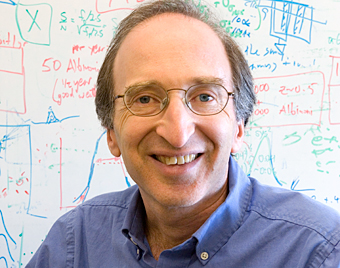Discover the groundbreaking research of UC’s Nobel Laureates in eScholarship
Last month, the Nobel Prize in Physics was awarded to Saul Perlmutter, an astrophysicist at the Lawrence Berkeley National Laboratory and professor at UC Berkeley. Want to explore his groundbreaking research? Check out some of his recent publications (http://www.escholarship.org/uc/search?creator=%22Perlmutter,%20S.%22%22Perlmutter,%20S.%22;creator-join=or) in eScholarship, UC’s institutional repository and open access publishing platform.
Warning: these publications may broaden your horizons. Literally. Perlmutter is known for his studies of supernovae to measure the rate of expansion of the universe.

Perlmutter is one of the more than 20 University of California Nobel Laureates (http://www.escholarship.org/about_nobel_laureates.html) who have authored or co-authored articles and working papers available in eScholarship.
Other recent prize winners featured in eScholarship include Elizabeth H. Blackburn (http://www.escholarship.org/uc/search?creator=Blackburn,%20Elizabeth%20H) (Physiology or Medicine, 2009), a molecular biologist at UC San Francisco whose research focuses on an enzyme that plays a role in aging and the development of cancer; and Robert F. Engle (http://www.escholarship.org/uc/search?creator=Engle,%20Robert%20F;) and Clive W. J. Granger (http://www.escholarship.org/uc/search?creator=Granger,%20Clive%20W.J.;sort=year) (Economics, 2003), both economists at UC San Diego who have published their studies of “time-series econometrics,” the statistical modeling of data to show the development of GDP, interest rates, and other economic measurements.
History-minded scholars and scientists may also be interested in exploring work of Nobel Laureates in eScholarship dating as far back as the 1950s. For example, the repository includes an article by Ernest Orlando Lawrence (founder of the Lawrence Berkeley Laboratory and 1939 Nobel Prize winner in physics) on high-current particle accelerators.
The CDL is honored to make available this innovative and important research.
